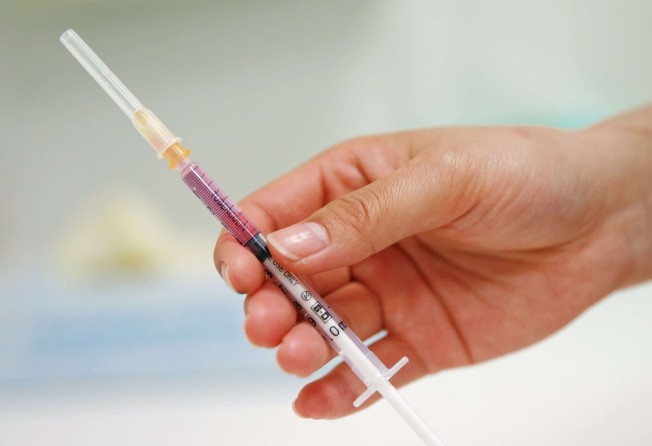Chinese authorities arrest 125 over vaccine racket
The prosecution of suspects tied to an illegal national distribution network is ramping up, after hundreds were detained last month

Chinese authorities have arrested 125 people for their alleged roles in an illegal vaccine racket worth half a billion yuan, Xinhua has reported.
The scandal put the national drug regulator under the spotlight and sparked public fears over the safety of the mainland’s vaccine distribution system.
The arrests were made in connection with 190 criminal cases that have been established in 22 provinces, according to an anonymous source from the top prosecutor’s office, Xinhua reported.
In addition, dozens of hospital employees and health officials are being investigated for taking advantage of their position in relation to the incident.
The scandal emerged when mainland media reported a woman in Shandong had bought and sold the vaccines – some of which were near their expiry date – and also improperly stored or transported them. Her distribution syndicate, which was in operation for five years, involved hundreds of dealers in 24 provinces.
The woman was arrested in April last year, but the case was not made pubic until February.
The arrests came after more than 200 suspects were detained and 357 officials removed from their positions or demoted last month. Some 37 health staff are under suspicion of failing in their duties, including 14 front-line hospital workers and local disease prevention and control centre chiefs who are suspected of taking bribes.
Twenty bosses at small hospitals are accused of turning a blind eye towards illegal vaccine trading carried out by their subordinates.
Three of those arrested were vaccine administrators or drug purchase officials who allegedly bought the vaccines knowing they were illegal.
The majority of the 1 billion vaccines administered on the mainland each year are part of its expanded programme on immunisation, which is free and compulsory.
The vaccines, which are bought and distributed by the government, are known as type 1 vaccines, which the World Health Organisation rates as the highest quality.
The mainland authorities have said that in the future, type 2 vaccines, which are not compulsory for children nor free, should also be collectively purchased by provincial disease prevention and control centres.
They will be distributed by local health organisations. In the past vaccines in this category were bought and distributed by drug companies.
Last weekend, four staff members at a health clinic in Chongqing were put under criminal detention for pocketing fees for vaccines given to children, the municipal government said.